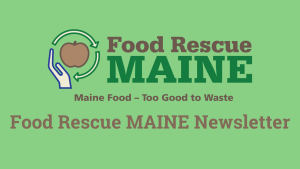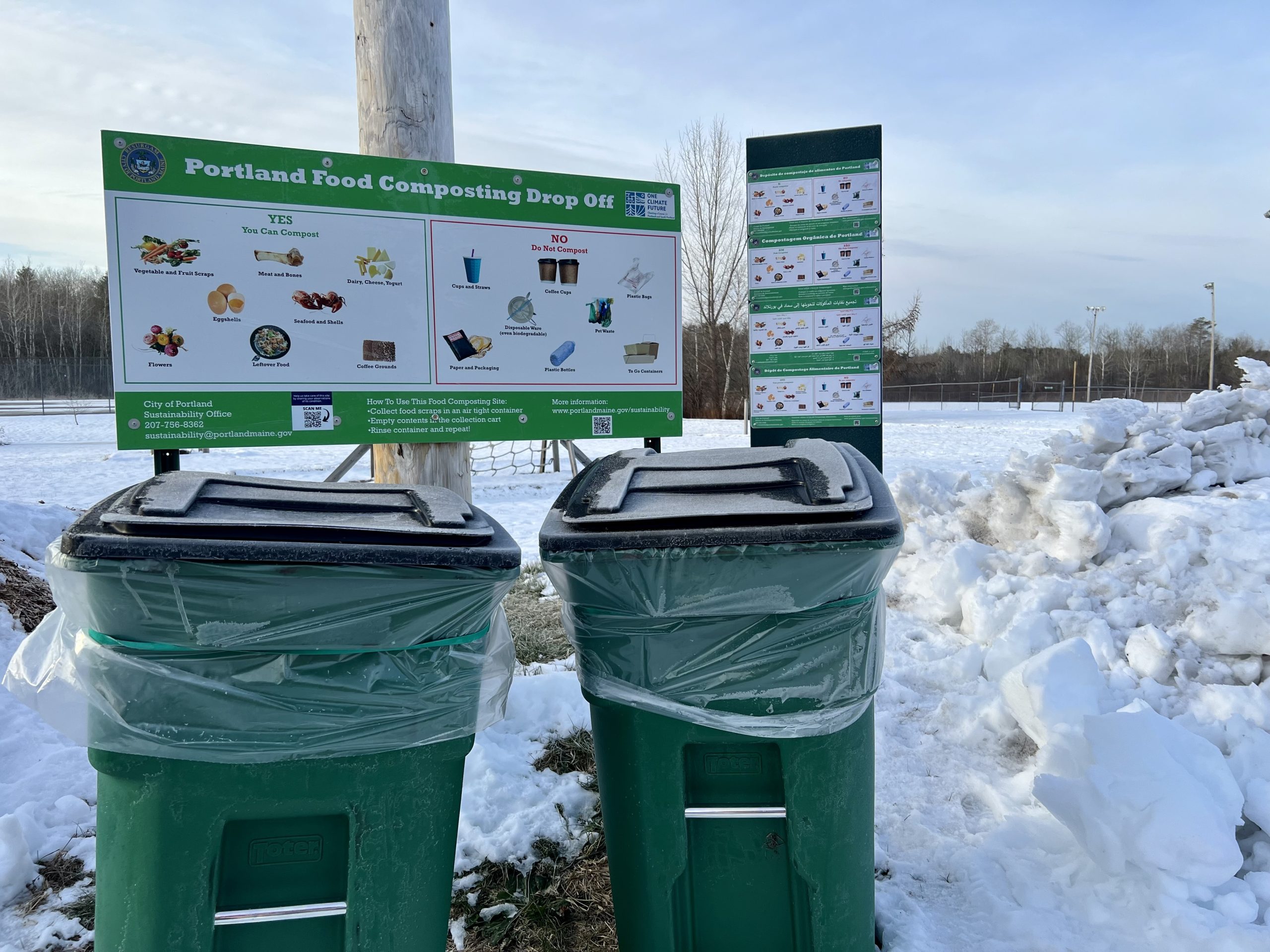
Pilot 1: Consolidated Community Food Waste Collection
FRM worked with the Maine towns of Portland, Waterville, Winslow, Readfield, Wayne, and Fayette to implement a community food recycling program.
Goals
To measure the potential of a community food recycling program to divert food out of landfills.
Methodology
- Select a diverse range of Maine communities based on size and location.
- Identify community-based leadership for the food recycling program.
- Develop food recycling program infrastructure.
- Promote community food waste education program.
- Measure and track community landfill diversion of food waste and related cost savings.
- Identify opportunities to increase food recycling and landfill diversion of food waste.
Results
Maine has the potential to save $1.2 million dollars annually by diverting food waste from landfill and reduce Carbon dioxide emissions by 27,736 megatons annually by diverting food waste from landfills.
Portland
Portland uses a dual model. They have 5 community collection sites, serviced by Agricycle, and a curbside collection program serviced by Garbage to Garden.
Portland’s program has been extremely successful. Their program generates monthly savings of more than $10,000 and they recycle around 150 tons of food scraps every month.
Waterville
Waterville gives residents access to curbside collection through Garbage to garden and community collection at I-Recycle, picked up by Agricycle.
This program has generated a lot of success. The community is recycling high and increasing amounts of food waste and has generated positive savings in the first year of the program.
Readfield, Wayne, & Fayette
Readfield uses a community compost method, where food scraps are brought to a central location every month where they are turned into compost for the community members to access for free.
As we have seen in Skowhegan, this model has immense potential. The program in Skowhegan generates the town more than $20,000 and generates individuals more than $32,000 in savings on compost.
Winslow
Winslow uses a community collection model whereby community members bring their excess food scraps to their local library. The level of food waste diverted has grown since the start of the pilot. This trend is mirrored by the savings generated by the town, and we expect the increasing trend we can see to grow in the future.
What We Learned
- In the upstart of a food recycling program, it may take a while to generate savings. There is a certain level of participation necessary to generate savings for a community.
- Communication, education, and outreach programs are crucial to the success of a program because they help drive awareness and participation.
- Adaptation is vital and should be expected when starting a new program.
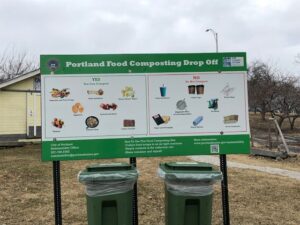
One of many Portland food composting drop-off sites.
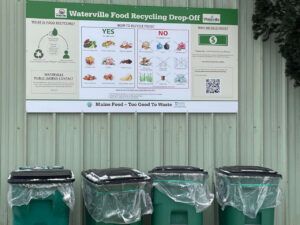
Waterville food recycling drop-off site.
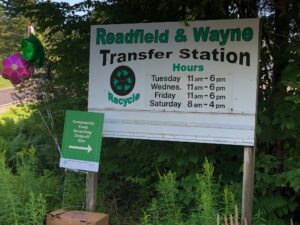
Readfield, Wayne & Fayette community food recycling drop-off site.
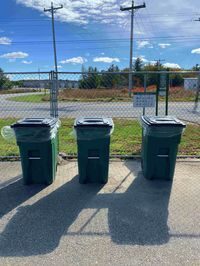
Winslow community food recycling drop-off site.

